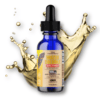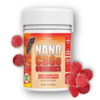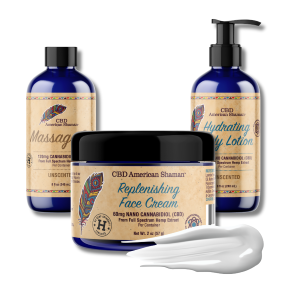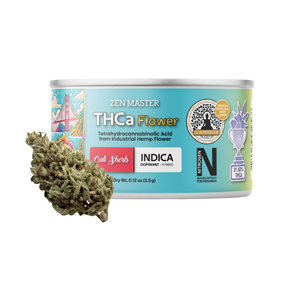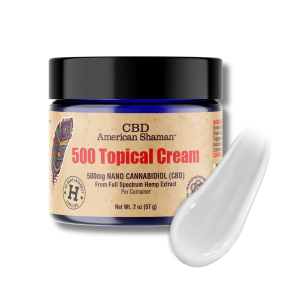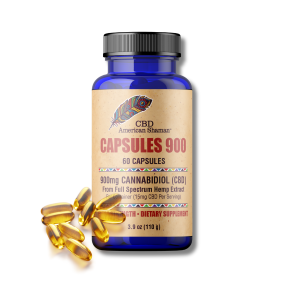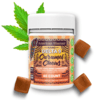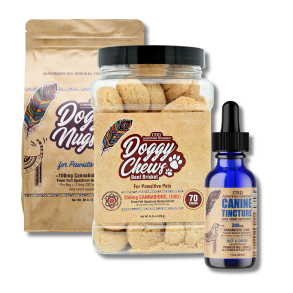
Shop CBG Products
CBG hemp oil from CBD American Shaman is made from high-quality, pure, terpene-rich hemp extract. Choose from CBG oil water solubles, hemp flower, gummies, and more. All of our CBG oil products are made with non-GMO hemp grown organically in the USA, enhanced with our proprietary nanotechnology, and lab-tested to ensure potency and purity standards. You are sure to find a CBG product you’ll love!
What is CBG?
Cannabigerol, or CBG, is one of over 100 naturally-occurring cannabinoids found in cannabis plants. CBG is a non-intoxicating cannabinoid, meaning it won't create a "high" like THC does. Cannabinoids are chemical compounds that interact with the human body through the endocannabinoid receptors located throughout the body. CBG is considered a minor cannabinoid because most cannabis plants contain only small amounts of CBG. Some hemp plants are bred to produce higher levels of CBG early in the plant's life cycle, limiting the production of other cannabinoids, which creates hemp that can be used to make CBG products.
What is CBG oil?
CBG is naturally formed in hemp plants and is extracted in order to activate and isolate the compound. This is done through extraction from the hemp plant and decarboxylation, or heating. The CBG extract is then added to carrier oils such as hemp oil or other oils to create a consumable CBG oil product. CBG in oil form can be taken as a tincture placed under the tongue or as a water soluble.
What are the benefits of CBG?
Although CBG offers many health benefits, it isn't as thoroughly researched as more well-known cannabinoids like THC and CBD. CBG has been known to support various health functions in the body, including sleep, mood, and energy. The energy CBG provides may have a similar effect to caffeine, but without the caffeine jitters. CBG is especially known for supporting digestive health. Like CBD, CBG may also help manage everyday stress and help provide a positive mental state.
How does CBG oil work?
Like CBD, CBG works with the body's natural endocannabinoid system (ECS) by interacting with the cannabinoid receptors located throughout the body. The ECS is responsible for regulating various functions in the body to create a state of homeostasis or balance. CBG binds to the receptors in the ECS to help regulate these functions and help the body return to a well-balanced state.
What's the difference between CBD and CBG?
Both CBG and CBD (cannabidiol) are cannabinoids that naturally occur in hemp plants. They are different compounds within the plant and have different effects on the body's endocannabinoid system. Both CBG and CBD are non-intoxicating, meaning they won't create any "high" effects in the user. One difference between the two is that they work with the body's endocannabinoid system in different ways. CBD doesn't directly bind with the ECS receptors as CBG does. CBG binding to these receptors elicits different responses than CBD. Sometimes full-spectrum CBD oil will contain traces of CBG. Hemp products that contain CBD, CBG, and other cannabinoids are known to create more effective results due to the entourage effect.
How do I use CBG hemp flower?
CBG hemp flower can be smoked in a joint, a pipe, or other smoking devices designed to hold hemp flower. If you're new to smoking hemp, you can check out our guide on how to roll a joint with hemp flower.
How do I use water soluble CBG?
Water soluble CBG oil easily dissolves in water, so you can add it to any drink. Our water soluble CBG product is 10 times more bioavailable than oil, meaning it is absorbed into the body more quickly, providing faster and more effective results.
Is CBG Legal?
Hemp-derived CBG has been legal on a federal level since the 2018 Farm Bill passed, which decriminalized hemp and hemp products. Legally, hemp products can't contain more than 0.3% THC, the intoxicating compound found in cannabis. Some states prohibit all traces of THC in hemp products, which means only THC free hemp products are allowed
Does CBG make you high?
Hemp-derived CBG won't make the user high or experience any intoxicating effects. The compound that gives users the "high" effect is THC (tetrahydrocannabinol), which is present in high levels in marijuana. Legally, hemp-derived CBG products can't contain more than 0.3% THC. This amount of THC is not nearly enough to create a high at all. All of our hemp products contain far less than the legal limit of THC, but we also offer THC-free products too.

Quality
Safety

Mission

Charity

Innovation

 Store
Locator
Store
Locator

